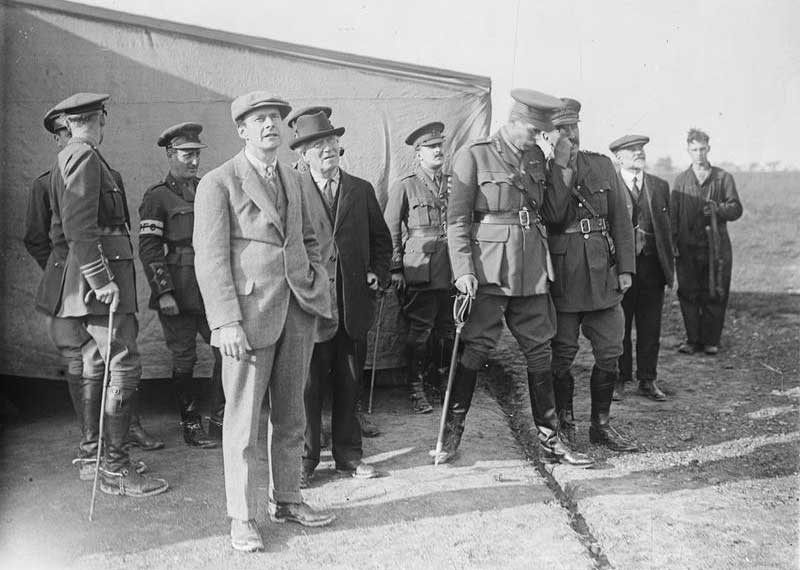Travels Through Time: Stalemate on the Western Front - 3 minutes read

On the first day of the Somme, 1 July 1916, 19,240 men serving in the British forces were killed and a further 38,000 were seriously wounded.
At home, the public was initially unware of the death toll, conscious only of those in mourning clothes in their local communities. In late July 1916, British newspapers begin to publish casualty lists, and by early August, the names of almost 7,000 killed or wounded men were printed in The Times each day. Government censorship prevented papers from commenting on the lists themselves.
In this episode of Travels Through Time, historian Simon Heffer takes us back to the year 1916, as stalemate takes hold on the Western Front and British society adapts to the War.
Heffer begins by discussing the Liberal party conference in Bristol in late January 1916, as the party leader and prime minister, Herbert Asquith, struggles to align conscription with his liberal principles. Advocated from 1915 by David Lloyd George, then Minister of Munitions, conscription was given Royal Assent on 27 January and required all single men aged 18 to 41, who were medically fit and not in a reserved occupation, to fight for their country.
Heffer then describes the scene outside Belfast City Hall on 12 July 1916, as an unofficial and spontaneous act of remembrance takes place. Finally, he discusses 5 December, as Asquith tendered his resignation to the King.
![]()
![]()
![]()
![]()
Travels Through Time. Tailored tours of the past.
Travels Through Time is presented by bestselling historian Peter Moore. In each episode we are joined by an expert guest, to journey to the time and place of their choice. Enjoy a ringside view of history as never before, with the action described by those who understand it best. Browse other episodes in this series here.
How to listen
You can listen to Travels Through Time here on our site in the player above, or on iTunes, Spotify, Podbean and Acast. There is also an RSS feed.
Further reading: related articles from the History Today archive
Court of the Conscripts
Rebecca Pyne-Edwards-Banks
Evidence from Britain’s First World War conscription tribunals reveals a surprisingly efficient and impartial system.
When the Men Came Marching Home
Alice Brumby
Having survived the rigours of the Great War, soldiers faced the return to civilian life. For some, it presented an even greater challenge.
The Somme: An exercise in futility?
Gary Sheffield
The first day of the Somme has become synonymous with incompetent leadership and a callous disregard for human life. Gary Sheffield offers a more complex picture of the battle and the role played by General Sir Douglas Haig.